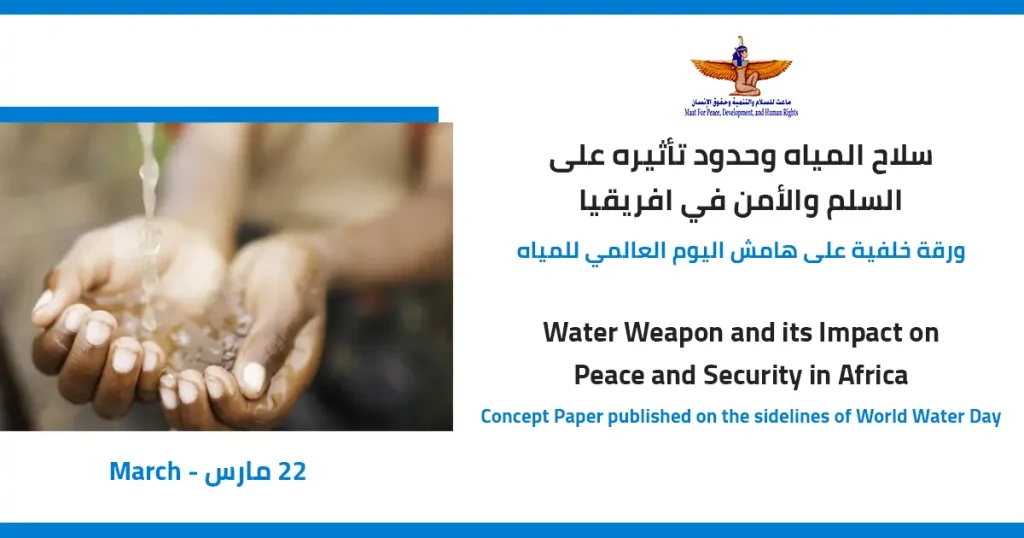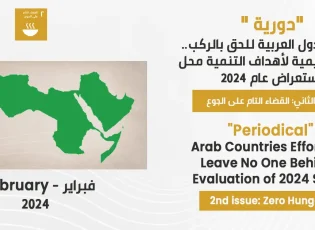Aqeel: We will continue to contact the UN mechanisms to pressure Qatar to release the detainees
Mena Abdul Raouf: The international community should pressure Qatar to improve the human rights situation
Asma Aryan: My husband has been detained since 2013 without a legal basis or a fair trial
Mohamed Arzeq: We contacted the Qatari authorities more than a hundred times to find out the fate of my brother, to no avail
Sheikh Talal's legal team: We submitted many complaints to the United Nations ... and Qatar is ignoring the response
Ali Mohamed: Qatari laws contain “vague” and “loose” terms and violate human rights
On the National Day of the State of Qatar, which falls on December 18 of each year, the Maat Foundation for Peace, Development and Human Rights organized a discussion session entitled “On the National Day of Qatar, appeals to citizens and foreigners to lift the arbitrary restrictions against them,” through which it shed light on the difficult conditions and conditions that detainees live arbitrarily in Diameter.
Where the session was divided into three parts, the first part dealt with the case of Sheikh Talal Al Thani, who is a member of the ruling family in Qatar and has been detained since 2013, and in the second part the case of Abdul Razzaq Ahmed Arzeq, a Syrian national who has lived in the State of Qatar for 15 years, was addressed. He was kidnapped and forcibly disappeared on May 28, 2020, and in the third part of the session the repressive laws under which the Qatari authorities oppress its citizens and residents of its territory were discussed.
The session was moderated by Menna Abdel Raouf, Director of the International Mechanisms Unit at the Maat Foundation, who said that the international community must pressure the Qatari authorities to improve the human rights situation in the country, and added that the Qatari authorities are still continuing the series of arbitrary restrictions and imposing administrative sanctions on Qatari citizens. And that, starting with members of the ruling family, passing through businessmen, until a former Minister of Justice was not spared from these restrictions, as well as citizens, and they were prevented from traveling for years and years, and they were unable to resort to the judiciary.
While Ayman Aqil, President of Maat Foundation, began his opening speech to remind the Qatari authorities of their obligations to respect and guarantee the basic human rights of Qatari citizens and residents in all circumstances. Aqeel called on the Qatari authorities to put an end to the repressive policies practiced against everyone who exercises their right to peacefully express their opinion. Maat, we provide all support to those detained in Qatar arbitrarily, and we will continue to contact the United Nations High Commissioner for Human Rights, and with special procedures to pressure the Qatari authorities to release all detainees.
For her part, Asma Aryan, the wife of Sheikh Talal Al Thani, thanked the Maat Foundation for its interest in the case of Sheikh Talal and all detainees in the State of Qatar, and said that her husband has been arrested since 2013, without a fair trial or a lawyer of his choice, and he is still being held incommunicado, without care. medical. And he suffers from many health diseases.
Mark Somos, a member of Sheikh Talal's legal team, confirmed that Sheikh Talal, who is a prominent member of the ruling family, is subjected to all these violations, including arbitrary arrest and denial of a fair trial, as well as contact with a lawyer and his family. He is also being held in solitary confinement, and he has been denied the opportunity. Challenge his detention before an independent and impartial judge, and thus how are ordinary citizens and foreigners residing in Qatar treated.
In the same context, Lux Sanchez, a member of Sheikh Talal's legal team, confirmed that they have submitted many complaints to the UN special procedures, especially the Working Group on Arbitrary Detention, to demand the release of Sheikh Talal, and that we are still waiting for a response, especially in light of the Qatari authorities ignoring the response to these complaints. Lux confirmed that the Working Group on Arbitrary Detention had visited Qatar during the past year, but the Qatari authorities did not allow them to visit many places of detention, including Sheikh Talal's place of detention.
In the second part of the session, the case of “Abd al-Raziq Ahmad Arzeeq” was discussed, where his brother Muhammad Arzeq said that we contacted Qatari State Security more than a hundred times to find out the fate of my brother, to no avail, since my brother’s disappearance last May. What was practiced by the Maat Foundation. The Qatari authorities allowed my brother to communicate with us for a few seconds to tell us that he was still alive.
During the third part of the session, the researcher at Maat Foundation presented the repressive laws that the Qatari authorities use in order to undermine human rights and restrict basic freedoms of citizens and foreigners, such as the Qatari State Security Law, the Law on Community Protection and the Anti-Terrorism Law, which are laws that contain vague and broad terms that leave a hostage The interpretations and interpretations of public prosecutors and judges who are appointed by the Emir of the country, which makes it a tool to limit freedom of opinion and expression, and legal restrictions on citizens.
During the session, discussion was opened to the attendees, where one of them demanded the need to form an international coalition to pressure Qatar to release the detainees, and one of the attendees asked about the reasons that make the international mechanisms reluctance to pressure Qatar to secure the release of the detainees. Ayman Aqil responded to this. The question by saying that it is Qatar that puts pressure on the UN mechanisms through the money that Qatar donates to these mechanisms, as it announced during its undergoing the universal periodic review that it donated 500 million euros to the Office of the High Commissioner for Human Rights.
In a videotaped intervention, Bashir Hassan, a Nigerian student who declared his support for the issues of detainees in Qatar, said and stressed the importance of the role played by human rights organizations, especially what the Maat Foundation does to advocate and defend victims. Hassan called on the international community to press the Qatari authorities to stop Intervention in African countries, including Nigeria.
















